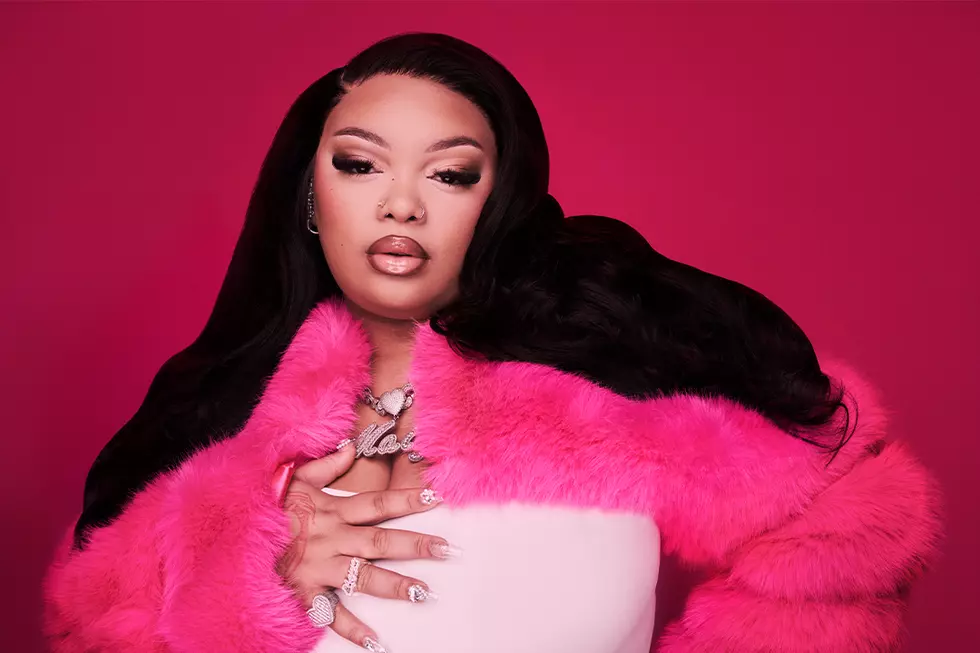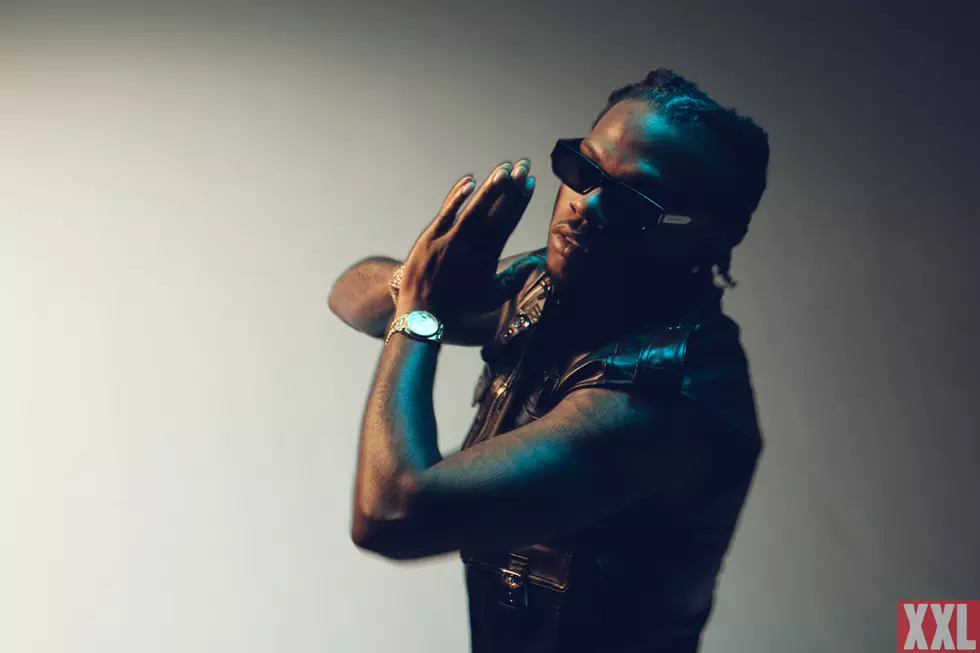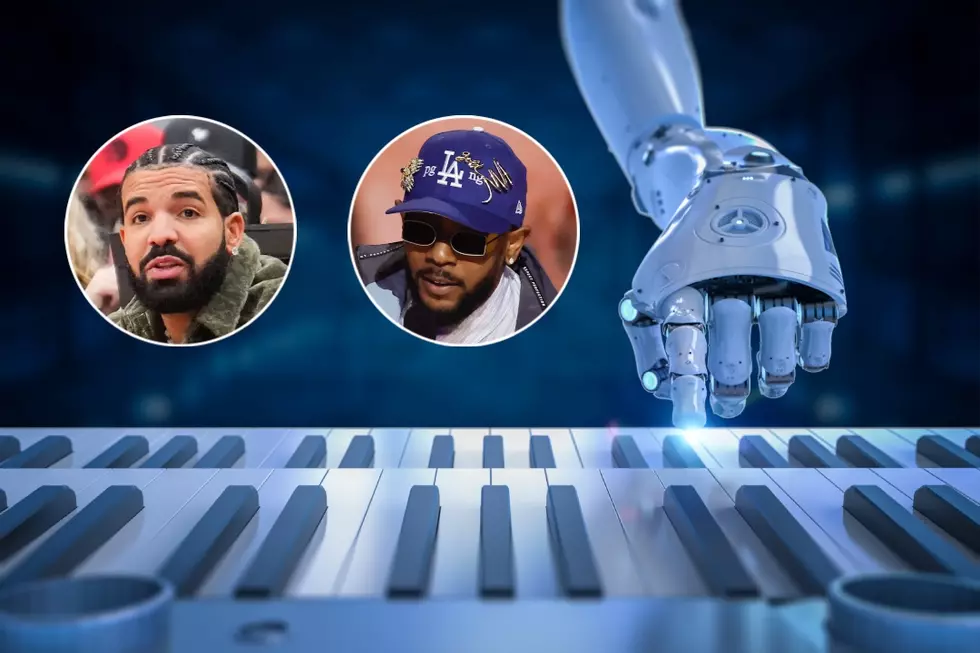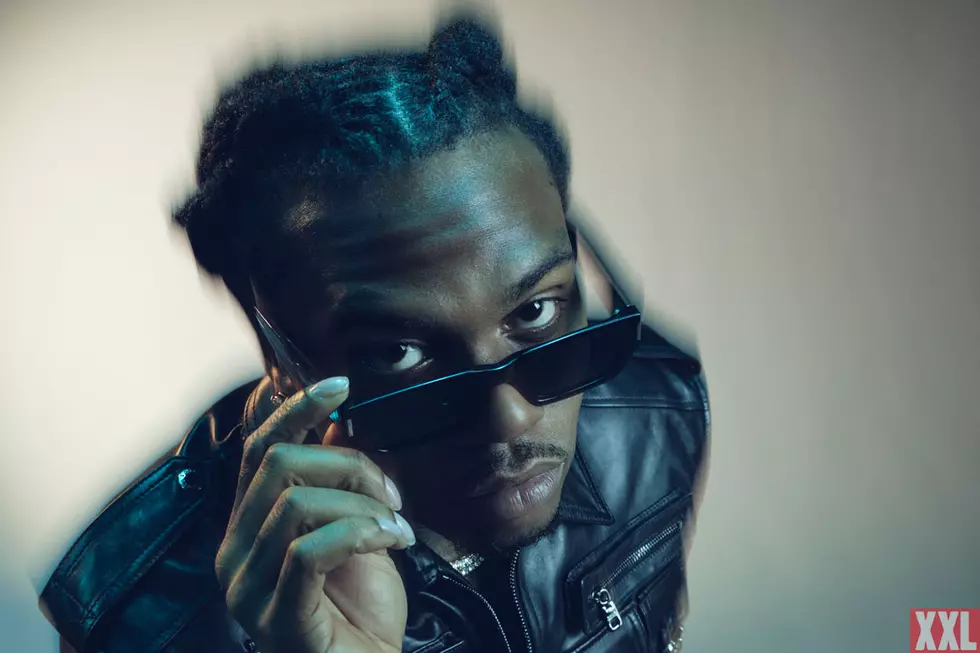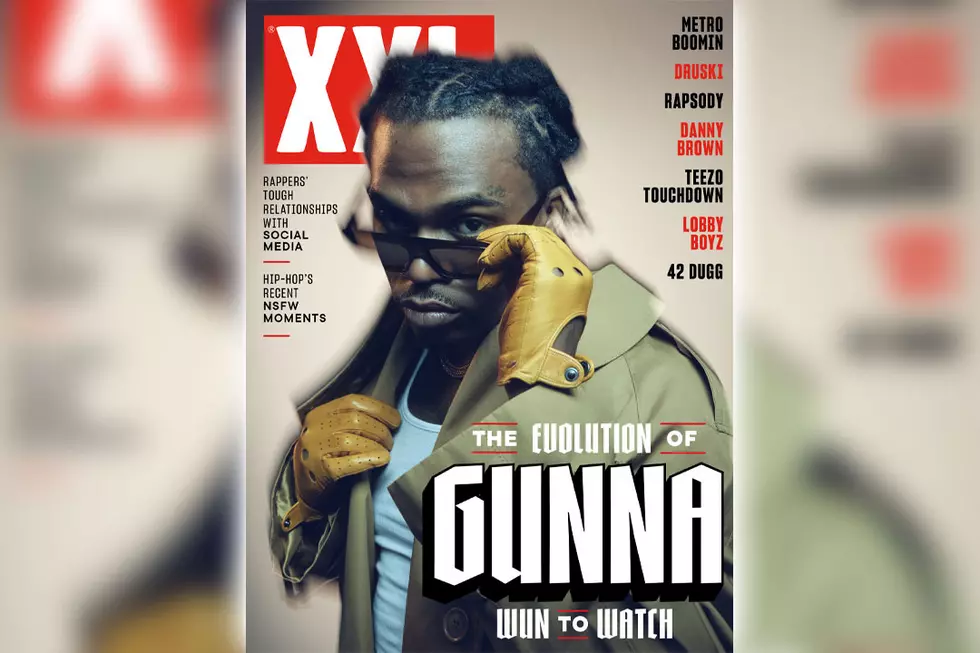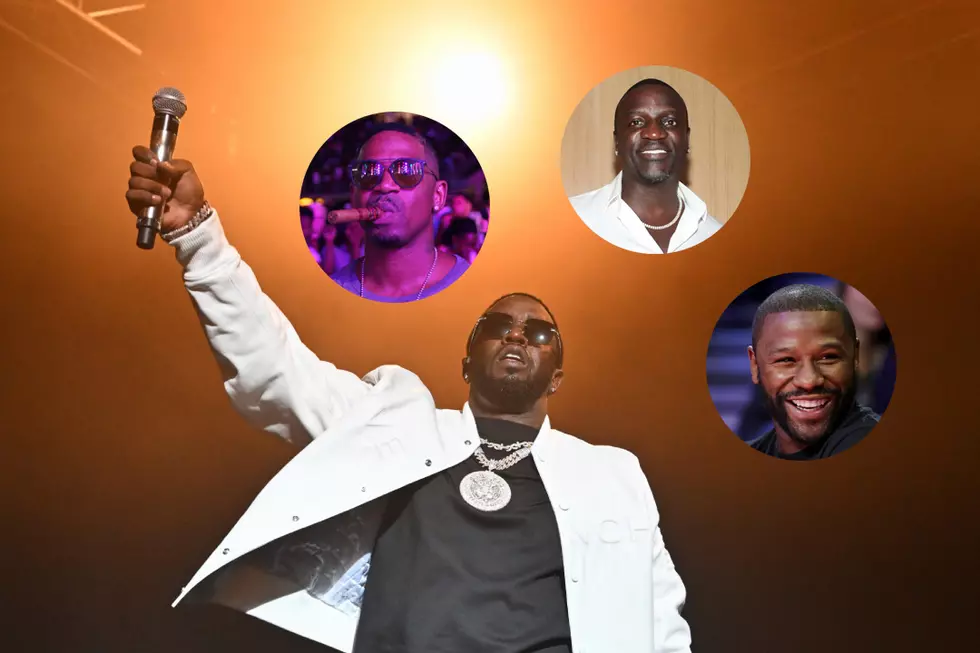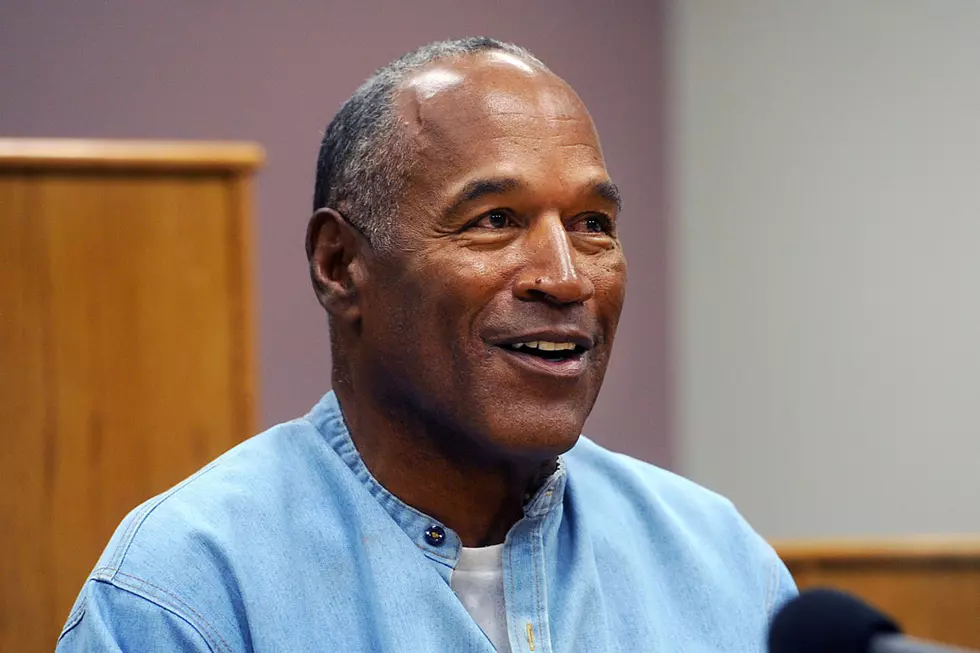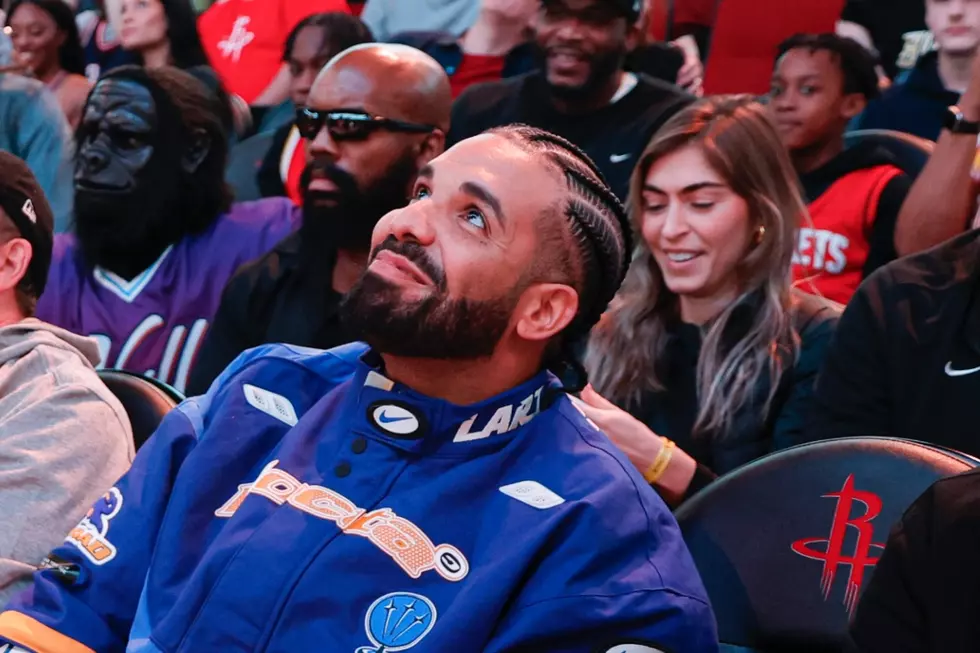
Logic Wants To Claim His Spot In Hip-Hop History
Pay Attention
With a big first album, dope rhymes and serious determination, hip-hop heads have only just begun to see Logic shine
Words Jeff Weiss
Editor’s Note: This story originally appeared in the Winter 2014 issue of XXL Magazine, on stands now.
If you were Logic, you’d probably be celebrating right now. It’s a late afternoon in early November and the Maryland-raised rapper recently learned that he’d sold 73,000 first-week copies of his debut album and Def Jam Recordings premiere, Under Pressure. That’s more than Iggy Azalea, YG, and all but one rap debut this year (ScHoolboy Q). Next week, the 2013 XXL Freshman will appear on The Tonight Show with Jimmy Fallon—his first national television experience—backed by his longtime heroes, The Roots.
Today should be a hard-earned day off, a rare holiday in a bruising touring, recording and promotion itinerary. The 24-year-old hip-hop obsessive raised in Section 8 housing, shuttling between substance-addicted and abusive parents, has finally made it. The friend’s couch that he once slept on has been swapped for a six-bedroom house deep in Los Angeles’ San Fernando Valley.
But inside this platinum-plaque-lined Hollywood studio, there’s no jubilant entourage sipping high-end liquor from red party cups. It’s marijuana-liberated California, but there aren’t any smoke clouds clogging the room. It’s just Logic, sitting in front of an ivory-colored keyboard, eyeing it like a calculus problem.
“I’m no longer the young guy in No I.D.’s studio asking for Kanye beats,” Logic reflects on his journey since a trio of well-received mixtapes led to him moving to L.A. in 2012 and signing to Def Jam in 2013.
Before the coastal switch, a basement studio doubled as his bedroom. There was no money for a recording booth, so he and his Rattpack crew used pillows for soundproofing. “No I.D. executive produced Under Pressure and helped me find the Logic sound that’s evolving every day,” Logic says, plunking a riff on the synthesizer before him. “Six months ago, I didn’t know how to play keys; now I can play a little bit—just enough before bringing in the big boys to do it better.”
This studio belongs to No I.D., the legendary Chicago producer, Kanye West’s mentor, Def Jam executive vice president, and the guy who signed Logic to the label. But it’s become Logic’s creative nerve center. Under the sanctified décor of Bruce Lee and Bob Marley posters, and vinyl records from J Dilla, Common and Lauryn Hill, Logic refined the sound of Under Pressure: a blend of boom-bap, psychedelic Jeff Beck samples, and sumptuous orchestration reminiscent of early Kanye. “From a skill level, he’s one of the best young rappers I’ve met,” No I.D. says. “His perspective and circumstances are unique. He cares about the historic perspective of how he does his music and laid down the foundation of who he really is on his first album. He’s earned the level of respect that comes when we know where you came from and what you love.”
If anything, the mood in the lab is a mixture of excitement and relief. Even though he’s supposed to hype the new album, it’s difficult for Logic to downplay his enthusiasm towards his next artistic shift. (He’s trying to bridge a long-standing love of anime to a traditional hip-hop aesthetic.) It’s also clear the pressure intimated in the album title wasn’t just a David Bowie reference. “I’m most proud about telling a story that I thought people probably wouldn’t believe based on the perception of how I look,” Logic says, alluding to frequent misperceptions about his appearance.
The child of a Black father and a White mother, his pale skin tone and blue eyes have often led to him being wrongly pegged as a beneficiary of white privilege. His birth name is Sir Robert Bryson Hall II, but back in Gaithersburg or Rockville, Md., he’s “Bobby.”
If you weren’t aware of the Marshall Mathers-insanity of Logic’s family life or the story of his friend serving 14 years for disemboweling a man in a presumed drug deal gone bad, you might easily mistake the high school dropout for the best rapper in the college dorms. Logic could stunt double as the chill likeable backpacker down the hall rocking a grey hoodie, camouflage shorts, and spitting the Tao of Wu-Tang and Tribe Called Quest in double-time. “I was a little nervous that people wouldn’t take to Under Pressure, because my style and what I embodied had previously been the braggadocious ’90s fun rapper type,” Logic admits. “Before this album, I didn’t rap about my life much. It’s peppered in on the mixtape tracks, but out of 20 songs, there would be two personal records.”
For his debut, Logic merged the “Got Bars” virtuosity to a more introspective narrative approach. “Gang Related” is an acrobatically rapped and doom-laden chronicle of his brother flipping crack to his dad in government housing. “Nikki” details his struggles with his lone vice, cigarettes. “I’m Gone” is a paean to his influences framed through a love for a woman. “I blended my favorites from the old and new schools. You can hear the influences in there, but it’s my story and my sonics,” Logic says. “I wanted to write it in a way synonymous to everyone’s story: the person who wants to be a doctor, or an actor, or any greater ambition to follow your dreams.”
The erstwhile Young Sinatra readily admits that the metaphorical devices have been employed before. He hails the legends that he carefully absorbed: Big Daddy Kane, Big L, Nas, Kanye and Wu-Tang. And the high praise has been reciprocated back. When Logic met Nas, the latter quoted his lyrics back to him. Lupe Fiasco said Logic was a better lyricist than Kendrick Lamar.
But there’s also a creative restlessness that makes Logic want to expand on his predecessors. It’s an article of faith that every musician loves music, but Logic’s passion outstrips most of his peers. He can barely go a few minutes without wanting to share a clip he discovered on YouTube, rhapsodize about the greatness of Warpaint, or confess a long-standing dream of working with Anthony Kiedis of Red Hot Chili Peppers. He’s both artist and fan, which might explain the familial kinship between him and his fan base. “The most successful artists to me are most human and relatable,” says Chris Zarou, Logic’s manager and the CEO of Visionary Music Group. “There’s a lot of substance to his music. A lot of rap is luxury based and people can’t necessarily empathize. With Logic, it’s about the everyday struggle: parents struggling with addictions, growing up poor. Plus, he can really rap.”
But beyond technical skill and a welcome place in the tradition, Logic aspires to evolve. His two most recent splurges have been an MPC-2000 and a projector used to re-watch Cowboy Bebop and Akira while making beats. “I bought a standard electronic beat machine but the digital aspect made it feel soulless,” Logic says. “There’s something about the analog look of the MPC with the old buttons, knowing Dilla was on it, Doom, Q-Tip, RZA. I want to be a part of this legacy.”
Logic’s not necessarily working on the next album, but he’s always working. The goal is to go left and create his own world: something simultaneously hip-hop and something entirely different. If he succeeds, there will be time to celebrate later.
Related: Logic Is Going On A 47-Stop World Tour
Watch Logic Perform “I’m Gone” On The Tonight Show With Jimmy Fallon
T.I. And Logic’s Albums Land At No. 2 And No. 4 In This Week’s Album Sales (10/29/2014)
Review: Logic Focuses On Telling Stories On His Debut Album Under Pressure
More From XXL
